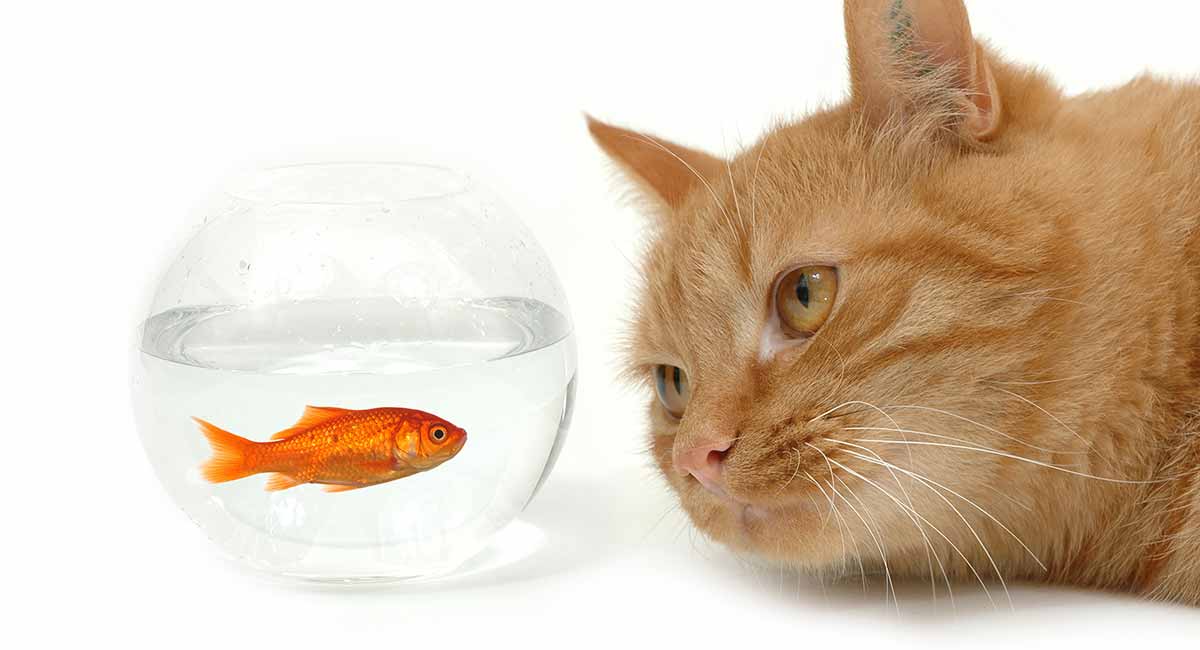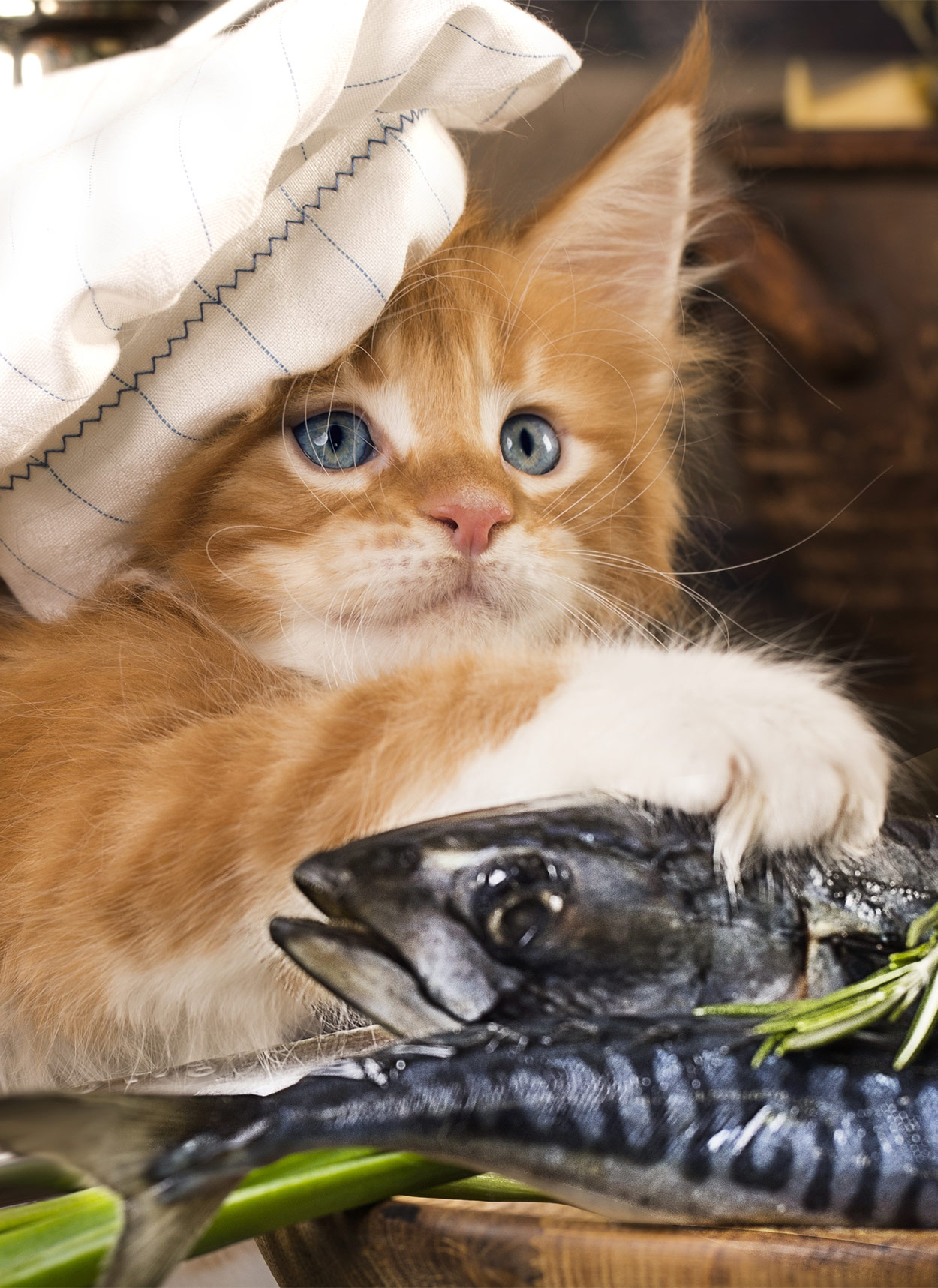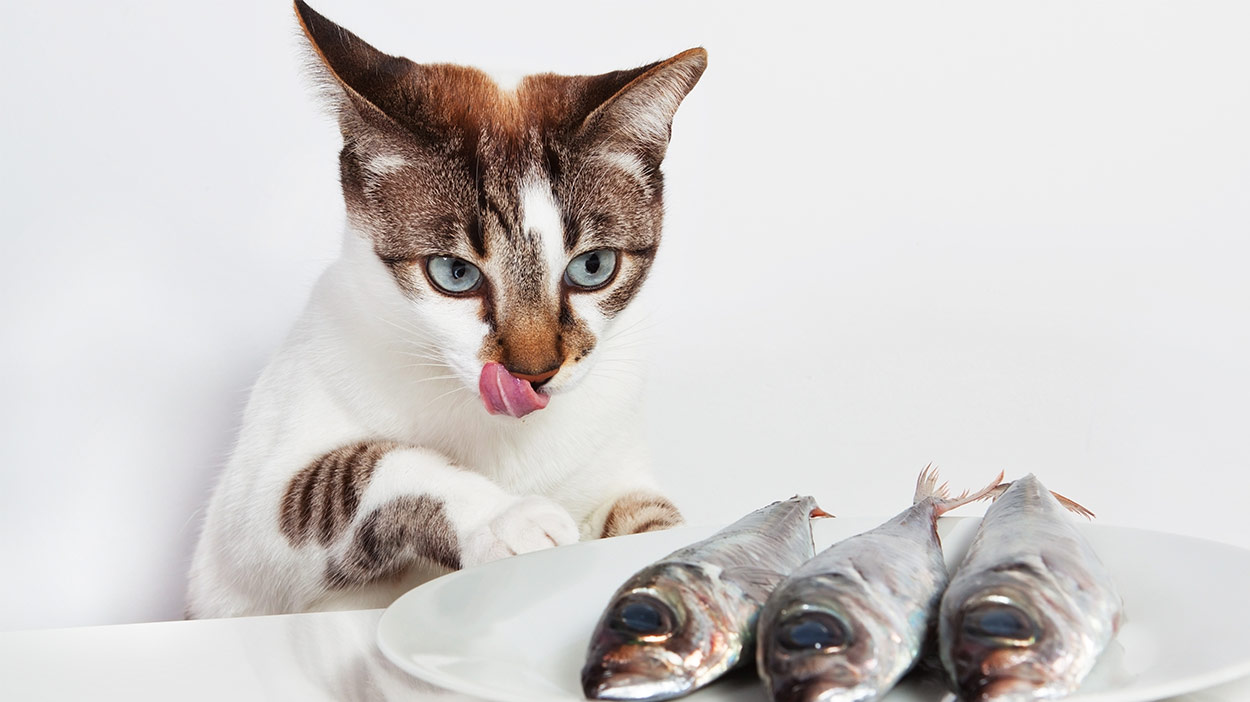
Fish oil for cats is a supplement that you can feed to your kitty. And it actually has scientifically confirmed health benefits! These include delaying dementia, helping with kidney or skin conditions, and giving a dose of vitamins, minerals and fatty acids. Fish oil can provide needed nutrition that older cats may be deficient in. It can also be beneficial for some skin ailments and other health issues that an unwell or elderly cat may face. Today I’ll share tips for how to feed it, what form to give it in, and deciding whether it’s the right choice for your cute kitten’s future health.
Contents
- Potential benefits of fish oil for cats
- Scientific studies
- Solving health problems
- Can cats take human fish oil supplements
- How to feed fish oil to cats
- Best supplements
What Is Fish Oil For Cats?
You don’t need to be a cat owner to know that there’s a lot of healthy eating buzz around oily fish.
Oily fish such as trout, salmon, sardines, mackerel, tuna, herring, anchovies and whitebait, are packed with vitamins and minerals. They are a rich source of fatty acids, including the famous omega-3 fatty acids. Fish oil supplements contain nutrients from these fish that can then be given to cats as part of a comprehensive and nutritious diet.
The Benefits Of Fish Oil For Cats
Fish oil supplements have a number of uses and potential benefits. It sounds basic, but with any supplement, the first thing to consider whether it will actually be absorbed by your cats gut and go on to reach the organs it was supposed to. Or will it just pass straight through and land in the litter tray a day later?
Studies Supporting It’s Use
Intent on answering the same question, researchers at Utrecht University in the Netherlands checked blood samples from cats eating a fish oil based diet compared to cats eating a sunflower oil based diet.
They found that when cats ate a diet supplemented with fish oil there were more fatty acids in their blood plasma. These included eicosapentaenoic acid, arachidonic acid, α-linolenic acid, oleic acid, palmitic acid and myristic acid. So we can see that the good stuff is getting into their circulation.

Other Benefits
Fish oil is frequently used as a nutritional supplement, to boost the intake of Omega-3 fatty acids. The oil is comprised of as much as one-third fatty acids, making this very efficient.
On the whole, healthy cats eating a high-quality, well-balanced diet are unlikely to become deficient in fatty acids. So if your cat is already young and healthy, fish oil can’t somehow make them younger and healthier. But for older cats and some unwell cats, it could really help them out.
It is used for a number of different issues in cats. Some of these include helping cats with kidney disease, urinary tract problems, and skin issues. We also know that supplementing dogs’ diets with omega-3 fatty acids could protect them from heart attacks, although we’re waiting on an analogous study in cats.
Possible benefits for cats may include:
- Full of vitamins and minerals
- Supplements your cat’s fatty acid intake
- Can help to protect older cats from dementia
- Assists with cats dealing with kidney conditions
- A popular treatment for skin conditions
Dry Skin
Supplementing cats’ diets with fish oil to combat dry and itchy skin conditions like flea allergy dermatits and atopic dermatitis has been a subject of veterinary research since the 1990s. In 2010 a small study on 14 cats found that a diet supplemented with fish oil can reduce skin inflammatory responses in cats with allergies, especially when combined with flaxseed oil.
However, a study submitted to the Veterinary Record in 1993 suggested that fish oil by itself was not enough to resolve miliary dermatitis (the itchy, scabby rash often suffered by cats with a flea bite allergy). Although when combined with evening primrose oil, it was.
Since healthy skin supports a healthy coat, many cat owners who give their kitty fish oil also report an improvement in the overall condition of their coat too. However, this is currently only supported anecdotally.
They will take into account the background fatty acids already present in your cat’s main food, their size, age, and other relevant health factors. Furthermore, ingesting high quantities of fish oil has been linked to vitamin E deficiency in cats.
Kidney Disease
Loss of kidney function is a common problem in older cats. Up to 30% of cats over 15 years old will eventually succumb to it. Kidney disease is all the more distressing since it is a progressive condition which will ultimately result in total kidney failure.
Fish oil for cats with kidney disease can help secure a longer period of healthy kidney function. In particular, the fatty acid eicosapentaenoic acid (no, I can’t say it either, but try and remember the name for later!) found in fish oils has been shown to significantly improve the prognosis of cats with kidney disease.
Bladder Problems
In 2017, scientists at Oregon State University discovered that cats taking supplemental fish oil had lower concentrations of calcium in their urine, and lower oxalate crystal formation. This in turn meant fewer urine stones. This is great news for any cat prone to urine stone formation.
Constipation
This makes sense because oil lubricates stuff… right?! And it’s true that when we’re constipated, fatty acids and the bile acids we synthesize to digest them can produce diarrhea. If you’re lucky that will clear the clear the blockage, but if you’ve ever tried it you’ll know the results can be a little, well… sudden, unpredictable and explosive. So it’s not a great solution for your cat.
Besides the uncontrollable diarrhea, the loose feces can leak past the compacted stool which is causing constipation anyway. This means your cat has diarrhea, they’re becoming dehydrated, and they are still constipated too. Which is why you should always visit your vet for a gentler solution to constipation, rather than self administering fish oil!
How Much Fish Oil Should Cats Take?
A 1998 review article of studies into the effect of diet on skin diseases in dogs and cats found the that fish oil supplements usually take three to eight weeks to take effect. They also found that several studies returned disappointing results because the amount of fish oil being administered was too low. This teaches us two things:
- Firstly, if you decide to purchase this supplement for your cat, look for a liquid fish oil for cats that contains pure, high quality oils.
- Secondly, ask your vet to help you work out the right dosage for your cat!
Can Cats Take Human Fish Oil Supplements?
Please don’t be tempted to give your cat fish oil supplements intended for humans. Many human supplements, such as cod liver oil, contain large quantities of vitamin A which your cat may not be able to digest safely. A product designed for pets is far safer.
Cat Food With Fish Oil
A good place to start is with complete foods that already include an oily fish component.
Fish oil really does have the potential to help cats with a lot of health problems, as well as improve their overall condition. Whenever you’re using elevated doses of fish oil to treat particular problem, you should always do so with your vet’s guidance. These are the kind of products they might recommend.
Purina Fancy Feasts Broths
These pre-prepared wet meals for cats*(paid link) include several seafood options which contain oily fish such as tuna, mackerel and salmon as their main ingredient. They also also vitamin E to protect against deficiency.

Canidae Grain Free Pure Cat Dry Food
If your cat prefers a dry food diet, this special recipe for easy digestion*(paid link) centers around salmon or trout.

Liquid Or Chewable Fish Oil Supplements For Cats
Alternatively, you can buy liquid fish oil to add to the meals your cat is already eating. Most fish oil supplements for cats come in bottles with a pump action dispenser to squirt on to meals. These are the best we’ve found:
Nordic Naturals Omega 3 Fish Oil Liquid
This fish oil comes from wild anchovy and sardines*(paid link). It contains 31% omega fatty acids, including 17% eicosapentaenoic acid (remember the one which which helped cats with kidney disease?) The bottle comes with a pipette for accurately measuring your cat’s dosage.

Terramax Pro Omega 3 Premium Liquid Fish Oil
This highly-rated supplement includes fish oils from sardines, herring, anchovy and mackerel*(paid link), caught using dolphin-friendly fishing methods. This fish oil supplement for cats contains 35% omega-3 fatty acids, 18% eicosapentaenoic acid, 7% omega-6 fatty acids, and no preservatives. The pump action bottle makes accurate dosing a little trickier, but can be less messy, if you know you only need whole “squirts”.

Grizzly Salmon Oil Cat Food Supplement
This pure salmon oil*(paid link) has amassed legions of loyal fans. The fatty acid content is fractionally lower than other oils – 29% omega-3, 10% eicosapentaenoic acid and 3% omega-6. But this simply represents the different amount of fatty acids in salmon compared to other fish. This oil might be an acceptable choice if your cat doesn’t like the flavor of other fish oils.

Bonnie and Clyde Wild Omega 3 Fish Oil
This well-loved oil is derived from sardines, anchovies and mackerel*(paid link). It also contains added vitamin E, to protect your cat against deficiency.

Makondo Pets Skin and Coat Supplement for Dogs and Cats
If your cat rejects fishy flavors, these chewable bacon-flavored supplements*(paid link) might be just the trick. Each tablet contains 250mg of fish oil, as well as rich combo of other vitamins and minerals (including vitamin E) Your vet can help you decide how many your cat should have per day.

Fish Oil Treats For Cats
A fun way to get a bit of extra fish oil into your cat is to find treats containing fish oil, and use them as part of games, or as rewards when you’re teaching good behavior. They might not be a practical way to administer meaningful quantities of fish oil, but they are a bit of fun nonetheless. We think these fish oil treats for cats fit the bill perfectly:
Zesty Paws Pure Freeze Dried Salmon Filet Treats
These treats are simply chunks salmon, preserved by freeze-drying*(paid link), and with nothing else added. They’ll appeal to you if you like your pet food to be low on ingredients, and recognizable for what it is.

Feline Greenies Smart Bites
These treats position themselves as a treat and multi-vitamin all in one*(paid link), but really the total fatty acid content is negligible – less than 1%. However, they’re a tasty reward if you’re teaching your cat tricks, and offer a little health boost as well.

Older Cats and Kittens
We know a few ways fish oil can benefit older cats. In 2012 researchers in Missouri and Canada found that a diet supplemented with fish oil, antioxidants and B vitamins could protect older cats from brain aging and dementia. This followed a 1979 study at the University of Michigan which indicated that omega-3 could protect them from strokes.
Fish oil should be safe for cats of any age, though most benefits will had for older cats or cats who are unwell. Kittens can have fish oil as a supplement or eat kitten food that includes fish oil. The main thing for kittens, however, is that they eat a diet that gives them the complete nutrition they need as they grow.
Fish Oil For Cats
This supplement can be a fantastic boost to their overall nutrition, especially if they are older or unwell. It can also be used to combat certain skin conditions.
Cats tend to love the taste of fish, so it could be an instant favorite, as well! But remember to check with your vet for the best dosage, since it varies from cat to cat.
Affiliate link disclosure: Links in this article marked with an * are affiliate links, and we may receive a small commission if you purchase these products. However, we selected them for inclusion independently, and all of the views expressed in this article are our own.
References
- Plantinga et al, 2003. The influence of dietary fish oil vs. sunflower oil, Journal of Animal Physiology and Animal Nutrition.
- Watson, 1998. Diet and Skin Disease in Dogs and Cats, The Journal of Nutrition.
- Yuanlong et al, 2012. Cognitive enhancement in middle-aged and old cats with dietary supplementation with a nutrient blend containing fish oil, British Journal of Nutrition.
- Black et al, 1979. The protective effects of dietary fish oil on focal cerebral infarction, Prostaglandins and Medicine.
- Culp et al, 1980. The effect of dietary supplementation of fish oil on experimental myocardial infarction, Prostaglandins.
- Hendriks et al, 2002. Vitamin E Requirement of Adult Cats Increases Slightly With High Dietary Intake of Polyunsaturated Fatty Acids, The Journal of Nutrition.
- Park et al, 2011. Dietary fish oil and flaxseed oil suppress inflammation and immunity in cats, Veterinary Immunology and Immunopathology.
- Harvey, 1993. Effect of varying proportions of evening primrose oil and fish oil on cats with crusting dermatosis, Vet Record.
- Plantinga et al, 2005. Retrospective study of the survival of cats with acquired chronic renal deficiency offered different commercial diets, Vet Record.
- Hall et al, 2017. Increased dietary long-chain polyunsaturated fatty acids alter serum fatty acid concentrations and lower risk of urine stone formation in cats, PLOS One.

Almost a week now that I’m giving my 10 month old cat the smallest dose of Grizzly salmon oil with a dropper. I suspect allergies due to excessive scratching even though her skin shows no signs of infections, dry scales or debris of any kind. My concern is that she gags after giving her the dropper of oil. She will not touch food if I put the oil on it. Should I stop?
Linda, I don’t know if you still have an issue, but I can get my cats to eat almost anything – including fish oil, probiotics, and l-lysine – if I mix it into a tiny bowl of rehydrated Honest Kitchen cat food. They love that food-beg for it, even. Good luck!
I’m doing the same thing! My cat won’t touch his food if I apply the fish oil directly to his canned cat food! I put the dropper in his mouth & squirt the fish oil in! The box says not to do this! WHY???
My cats don’t like grizzly salmon oil in their wet food, or mixed with their crunchies. Long haired car pulls his fur(not till bald, tho), ends up eating a lot of it coz it sticks in his mouth. Hairballs!! Trying to lubricate his digestive tract. Help!!
I’m doing the same thing! My cat won’t touch his food if I apply the fish oil directly to his canned cat food! I put the dropper in his mouth & squirt the fish oil in! The box says not to do this! WHY???
Every 2-3 nights I break a fish oil capsule over my 11 year old cats dry food.
I have found that he loves it for one and for another it helps with his bowel movements.
I have been doing this for a couple of years with no known side effects.
My two cats hate it when I break the omega fish oil caps over their food. And, I’ve bought two different kinds. Both are recommended and one was mentioned in the article. But they hate them both. I cant blame them because if I had to break open my own omega supplements and smell them, I probably wouldn’t take mine either. I don’t know what else to do. Help!
I just tried putting a pump full on my cats dry food. She was really hungry but she took one sniff & walked away. Lol. I put some regular food without it in another bowl after & she ate that up.
Exactly what mine did. Anything soft or dry food he walks away
Why can’t I feed the fish oil from the dropper directly into his mouth? It says not to do it! Is it because of the contamination in my cats mouth?
I read that the oil given by dropper into mouth can possibly be inhaled into the lungs.